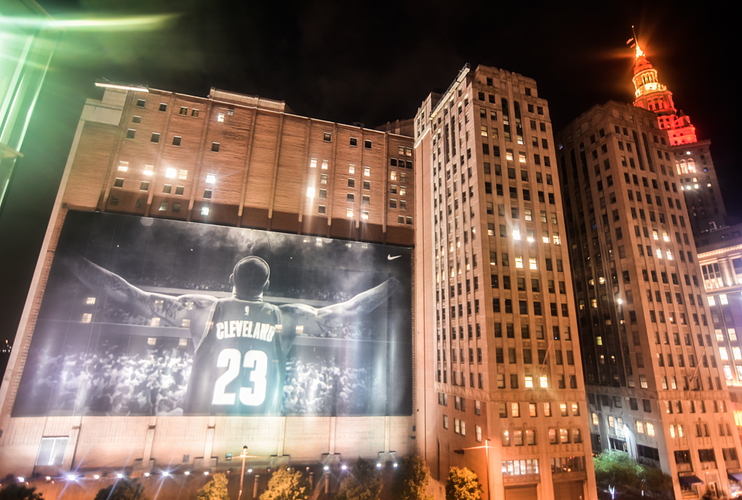For n+1, our own Stephen Squibb writes about Lebron James, who many of you probably know just carried the Cleveland Cavaliers to the NBA championship. (As an Akronite who went to high school at the same time as James and who remembers how dark the Cav’s erstwhile reputation was, this is truly remarkable to me.) Read Squibb in partial below, or the full version on n+1.
“I DON’T KNOW WHY THE MAN ABOVE always has to give me the hardest road,” LeBron James said last night, after leading the Cleveland Cavaliers to that city’s first championship in five decades, his third; an effort for which he was unanimously awarded the Finals MVP, also his third. It was one of James’s Kanye moments, when a transcendent, genre-defying black genius runs afoul of his homeland’s Puritan neuroses. Concealed deep in our collective unconscious, these snares lie in wait for the upstart who has not been told that, as in war, the first casualty of fame and success is the truth. The more obvious and indisputable one’s achievements, the more important it is to act like they don’t exist. This is part of the competition, too; the part that white people don’t talk about, in order to keep men like James and West from reaching the places reserved for even the most obviously ruthless of the Aw-Shucksers, like Peyton Manning and Tom Brady. Or Steph Curry’s daughter. How could LeBron, on the cover of Sports Illustrated as a teen, ever think his road hard? Never mind the hardest.
Kanye has responded to the funhouse of fame by wielding a crazed, Byzantine egomania intended to reveal, one way or another, the distance between the truth and the presentation of the truth. LeBron is temperamentally so different—he is, essentially, an Aw-Shuckser. The fact that he’s smarter and more capable and competent than everyone around him manifests as a heaviness and a weariness and lines on his forehead. He did not ask to be born in the inner city of Akron, Ohio, with an otherworldly combination of size, speed, strength and agility. He did not request a hometown in the middle of this blighted continent, a perfect distillation of the violent racial animus that grips a region in the midst of half a century of economic decline. The moment that Milton gives Jesus, in Paradise Lost, where he volunteers to redeem humanity in the face of his father’s rage? James never had that. He just found himself here, and set about doing the best he could.
*Image by Erik Drost via n+1
